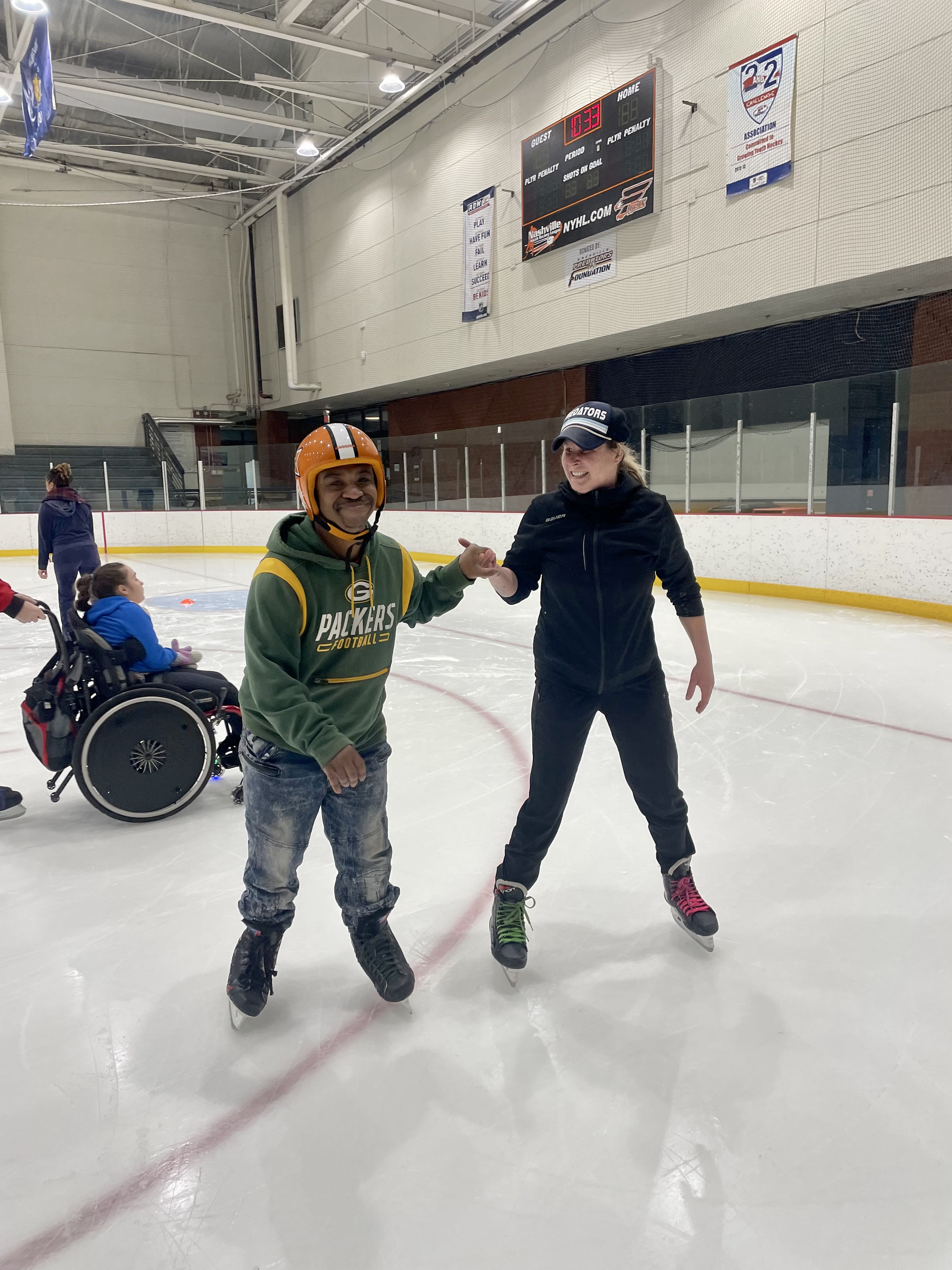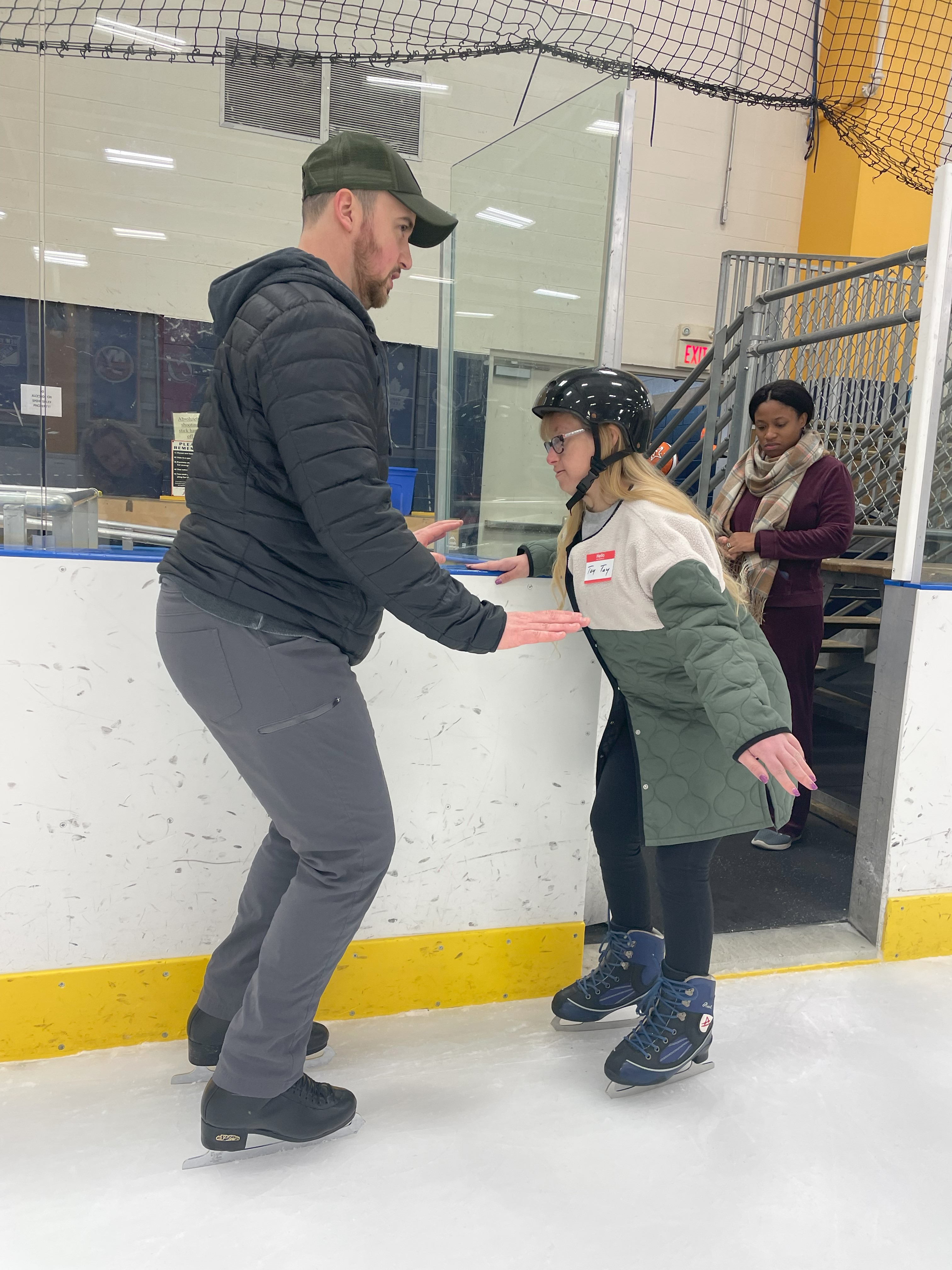Editor’s note: July is Disability Pride Month. Two of U.S. Figure Skating’s adaptive skating programs — one in Boston and the one featured below in Nashville, Tennessee — are enhancing the lives of young people and adults across the country. Check out what’s happening at The Skating Club of Boston in the August-September issue of SKATING magazine.
By Courtney Fecske
Nashville Skating Academy’s Erica Edwards and Glen Adkins, director of the Metro Parks DisABILITIES program, saw an opportunity and took it to the ice.
The Nashville Skating Academy, an independent business that rents ice from the Centennial Sportsplex, happens to be where the Metro Parks DisABILITIES program is based. A serendipitous collaboration ensued.

A total of 15 enthusiastic adult skaters have embraced a new adaptive skating class. They have participated in three, six-week sessions to date. The original plan was simply to host a one-time event, with the intention to expose people with disabilities to figure skating. An overwhelming response, however, merited a more extensive program.
“It’s my favorite day of the week,” Edwards said. “It’s amazing to see the different skill sets and the discipline and determination of all the athletes. The skaters love it. They get out there and have a great time.”
To launch the program, Edwards tapped into the online Learn to Skate USA toolkit. The adaptive class is set to become part of the Nashville Skating Academy’s general Learn to Skate USA curriculum.
Edwards has focused on making sure all of the skaters have the equipment to meet their needs. In support of the program, the Nashville FSC submitted a proposal to the Nashville Predators Foundation and was awarded a Helpers grant. The grant supports the purchase of adaptive equipment to help skaters get on to the ice and continue to develop their skating skills. The plan is to purchase adaptive sleds of different styles to help with the diverse needs of the program’s current and future athletes.
Adkins, who works with and offers other adaptive sports, said one of his favorite parts of his job is watching these athletes excel beyond others’ expectations.
“There is usually a focus on what they can’t do,” Adkins said. “Until we get people out there, we don’t know what their skills could be,” adding, “I was shocked at how many people were interested and surprised by how much everyone enjoyed skating and how fast they were progressing.”
Some of the skaters, Edwards said, would unexpectedly take off on the ice, and all asked about when the next lesson would be.
“It’s nice to be around a population that really wants to be there and to skate,” Edwards said.
The participating adults have a range of physical, intellectual and developmental disabilities. Some are ambulatory while others use wheelchairs on the ice. Some of the skaters communicate verbally while others communicate nonverbally.

The adaptive athletes started by working on foundational skills and many have improved to learn more advanced skills. The skaters who use power and manual wheelchairs complete obstacle courses on the ice and these athletes are also trying out some of the drafted seated skating curriculum from the Adaptive Skating Subcommittee.
“Overall, a pivotal focus of the program is to provide access and include everyone on the ice who wants to try it,” Adkins said. “This means tailoring the skating experience to each skater to meet their needs where they are at.”
Ali Blank and Robert Mauti have experience coaching adaptive skaters and have been involved in getting the program off the ground.
“As the program continues to develop and grow, more coaches will be trained so they feel prepared and able to coach diverse skaters,” Edwards said.
Edwards and Adkins encourage other groups to “not be afraid to ask” when contemplating starting a new adaptive skating program.
“Rinks and programs need to have open doors and provide opportunities for skaters to get out there and do their best,” Edwards said.
Edwards and Adkins want to expand the program to include in-house competitions, holiday shows and every aspect of the Learn to Skate USA program. They are also encouraging Special Olympics Tennessee to add figure skating to its Winter Games.


